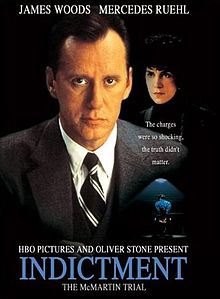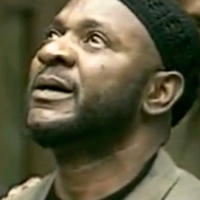Rascals case in brief
In the beginning, in 1989, more than 90 children at the Little Rascals Day Care Center in Edenton, North Carolina, accused a total of 20 adults with 429 instances of sexual abuse over a three-year period. It may have all begun with one parent’s complaint about punishment given her child.
Among the alleged perpetrators: the sheriff and mayor. But prosecutors would charge only Robin Byrum, Darlene Harris, Elizabeth “Betsy” Kelly, Robert “Bob” Kelly, Willard Scott Privott, Shelley Stone and Dawn Wilson – the Edenton 7.
Along with sodomy and beatings, allegations included a baby killed with a handgun, a child being hung upside down from a tree and being set on fire and countless other fantastic incidents involving spaceships, hot air balloons, pirate ships and trained sharks.
By the time prosecutors dropped the last charges in 1997, Little Rascals had become North Carolina’s longest and most costly criminal trial. Prosecutors kept defendants jailed in hopes at least one would turn against their supposed co-conspirators. Remarkably, none did. Another shameful record: Five defendants had to wait longer to face their accusers in court than anyone else in North Carolina history.
Between 1991 and 1997, Ofra Bikel produced three extraordinary episodes on the Little Rascals case for the PBS series “Frontline.” Although “Innocence Lost” did not deter prosecutors, it exposed their tactics and fostered nationwide skepticism and dismay.
With each passing year, the absurdity of the Little Rascals charges has become more obvious. But no admission of error has ever come from prosecutors, police, interviewers or parents. This site is devoted to the issues raised by this case.
On Facebook
Click for earlier Facebook posts archived on this site
Click to go to
Today’s random selection from the Little Rascals Day Care archives….
Click for earlier Facebook posts archived on this site
Click to go to
Today’s random selection from the Little Rascals Day Care archives….
Not everyone was moved by HBO’s McMartin drama
 March 31, 2015
March 31, 2015
“…The watershed event marking the shift in public opinion on these (“satanic ritual abuse” day care) cases was the HBO airing of ‘Indictment: The McMartin Trial’ (watchable here on YouTube) in May 1995, wherein Ray Buckey, the child-molesting villain of the McMartin trial, was recast as the victim of a hysterical conspiracy theory.
“Five years earlier, no major television network would have dared question the infallibility of the testimony of ravished, innocent babes. A network like HBO is closely attuned to shifts in the public mood.
“Such TV dramas and feature films are generally more likely to respond to existing trends in public opinion on controversial issues than to break new ground, and so this docudrama marked a sort of closure on the issue in the public imagination, though the judicial system cannot shift direction so quickly.”
– From “The Metanarrative of Suspicion in Late Twentieth-Century America” by Sandra Baringer (2004)
Eighteen days before HBO broadcast “Indictment,” the North Carolina Court of Appeals had overturned the convictions of Bob Kelly and Dawn Wilson, but Kelly’s torture at the hands of the state was far from over: A year later he would be charged with raping a young girl outside the day care in 1987. Was prosecutor Nancy Lamb unable to “shift direction so quickly” – or simply unwilling?
The last trial of Darryl Hunt

imdb.com
Darryl Hunt
March 17, 2016
The award-winning documentary “The Trials of Darryl Hunt” was released in 2006, but of course Hunt’s world-famous exoneration only freed him to face new trials on the outside – most recently divorce and cancer.
Winston-Salem police Wednesday attributed his death to suicide by gunshot.
Amazingly, Darryl Hunt overcame the unspeakable damage done by 19 years of wrongful imprisonment to build a life of righteous achievement. I’m choosing to remember his journey, not its end.
![]()
Prosecutors’ motto: But they’re still guilty!
Jan. 20, 2012
Although the West Memphis Three weren’t day care workers, their notorious case – most recently updated in HBO’s “Paradise Lost 3: Purgatory” – holds obvious parallels to that of the Edenton 7.
In both courtrooms voodoo justice ruled.
Most poignant to me, however, is that prosecutors in Arkansas and North Carolina shared a dedication to ensuring the defendants’ long-overdue release bore the least possible resemblance to exoneration.
In August 2011 the West Memphis Three were required to enter an Alford plea, maintaining their innocence but acknowledging that sufficient evidence existed to convict them.
On May 23, 1997, Nancy Lamb announced the decision not to challenge the overturned convictions of Bob Kelly and Dawn Wilson in order to “allow wounds to heal…. The paramount thing is not having to drag these children through this again.” Her timing seemed aimed – futilely, as it turned out – at averting the national outrage that would come four days later with the airing of the final episode of “Innocence Lost.”
Two years later, when the last charges against Kelly were dismissed, here’s how Joseph Neff of the News & Observer described the scene:
“The prosecutors in the longest, most expensive criminal case in North Carolina history picked a day when all attention was focused elsewhere to quietly throw in the towel.
“It was Sept. 15, as Hurricane Floyd churned northward toward landfall the next day, that Assistant District Attorney Nancy Lamb filed a two-page document with the Clerk of Superior Court in Edenton, dismissing eight counts of sexual abuse against Robert Kelly.”
‘Fear of closets’? Get that child to a therapist!
Oct. 22, 2012
In the Dark Ages of social science – the 1980s, give or take a few years — unfounded concepts were treated as received truth: satanic ritual abuse (later recast as sadistic ritual abuse), multiple personality disorder (later, dissociative identity disorder), repressed memory syndrome.
On what possible grounds did California clinical psychologist Catherine Gould determine that satanic ritual abuse was indicated by a child’s “Refusal to eat red or brown food” or “Fear of closets and small spaces” or “Preoccupation with cleanliness”? Did this crazy quilt of symptoms come to her in a hallucination.
Regardless, Gould’s list, widely photocopied, contributed to parental panics at day cares across the country. After all, she was “a licensed psychologist specializing in the diagnosis and treatment of adult and child victims of ritual abuse”!
So just how reliable an authority was Catherine Gould? Well, it was she who first claimed the Los Angeles County Ritual Abuse Task Force was being poisoned with diazinon.
Later, according to the Associated Press, “She said her blurred vision and failed memory weren’t psychosomatic, but she admitted she never visited a doctor to be tested for the pesticide.”
Refusal to eat red or brown food
Fear that food is poisoned
Bingeing, gorging, vomiting, anorexia
Problems Associated with Doctors
Fear of doctors
Fear of injections, blood tests
Fear of removing clothes
Toiletting/Bathroom Problems
Bathroom avoidance, toileting accidents
Preoccupation with cleanliness
Preoccupation with urine and feces
Ingestion of urine and feces
Family Problems
Fear of death of parents, siblings, pets
Separation anxiety
Avoidance of physical contact
Threatens or attacks parents, siblings
Sexual Problems
Age-inappropriate sexual knowledge
Fear of touch
Excessive masturbation
Sexually provocative behavior
Vaginal or anal pain
Relaxed anal sphincter,enlarged vaginal opening
Venereal disease
Emotional Problems
Rapid mood swings
Resistance to authority
Hyperactivity, poor attention span
Anxiety
Poor self-esteem
Withdrawal
Regression and babyish speech
Flat affect
Nightmares, night terrors
Learning disorders
Fear of closets and small spaces
Fear of being tied up, ties up others
Problems Associated with Colors
Fear of colors red and black
Preoccupation with color black
Problems Associated with Death
Fear of dying, preoccupation with death
Play and Peer Problems
Destroys toys
Death, mutilation, confinement themes in play
Inability to engage in fantasy play
Problems Associated with Supernatural
Fear of ghosts, monsters, witches, devils
Preoccupation with wands, spirits, magic potions, curses, crucifixes
Odd songs and chants
Preoccupation with occult symbols
Fear of attending church
Other Fears and Strange Beliefs
Imaginary friends
Fear of police, strangers, bad people
Fear of violent films
Fear of aggressive animals
Fear of cemeteries, mortuaries, churches
Fear of something foreign inside body, e.g. bomb, devil’s heart
Downloaded Oct. 22, 2012 from http://www.prism.gatech.edu/~kquach6/common.html











0 CommentsComment on Facebook